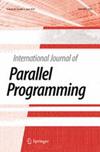自闭症与自我、他人和玩具物体的心智知觉之间的关系
IF 0.9
4区 计算机科学
Q3 COMPUTER SCIENCE, THEORY & METHODS
引用次数: 1
摘要
自闭症被发现与心灵感知有关,特别是对人类能动性的感知减少。先前的研究表明,在普通人群中,更多的自闭症患者倾向于认为他人做事和思考能力较差。相比之下,在过去的研究中,自闭症与其他类型的实体(包括儿童、非人类动物、超自然媒介等)的思维归因并没有意义上的联系。本文研究了更多类型的实体——玩具对象和自我。在两个正常成人样本和荟萃分析中,自闭症被发现与其他成年人以及自己对经验和代理精神能力的感知能力下降有关。更多的自闭症患者倾向于认为他人和自己在做事和感受方面的能力都较差。自闭症还与大脑对玩具物体的感知能力增强有关,因此,更多的自闭症患者倾向于认为玩具物体更有能力做和感觉。这些发现部分重复并有意义地扩展了之前关于自闭症和心灵感知的工作,从而深入了解自闭症与他人、自我和玩具物体的潜在不同感知和治疗之间的关系。本文章由计算机程序翻译,如有差异,请以英文原文为准。
Relationship between autism and mind perception of selves, others, and toy objects
Autism is found to be associated with mind perception, in particular reduced perception of human agency. Prior work has shown that more autistic individuals in the general population tend to view others as less capable of doing and thinking. Autism is, by contrast, not meaningfully associated with the mind attribution to other types of entities examined in past work, including children, nonhuman animals, supernatural agents, and so forth. In this paper, more types of entities—toy objects and selves—were investigated. Across two normal adult samples and a meta-analysis, autism was found to be associated with decreased perception of both experiential and agentic mental capacity in other adult humans, as well as in oneself. More autistic individuals tend to consider others and themselves less capable of both doing and feeling. Autism was also associated with increased mind perception of toy objects, such that more autistic individuals tend to consider toy objects more capable of doing and feeling. These findings partially replicated and meaningfully extended previous work on autism and mind perception, thus providing insight into the relationship of autism with potentially different perceptions and treatments of others, selves, and toy objects.
求助全文
通过发布文献求助,成功后即可免费获取论文全文。
去求助
来源期刊

International Journal of Parallel Programming
工程技术-计算机:理论方法
CiteScore
4.40
自引率
0.00%
发文量
15
审稿时长
>12 weeks
期刊介绍:
International Journal of Parallel Programming is a forum for the publication of peer-reviewed, high-quality original papers in the computer and information sciences, focusing specifically on programming aspects of parallel computing systems. Such systems are characterized by the coexistence over time of multiple coordinated activities. The journal publishes both original research and survey papers. Fields of interest include: linguistic foundations, conceptual frameworks, high-level languages, evaluation methods, implementation techniques, programming support systems, pragmatic considerations, architectural characteristics, software engineering aspects, advances in parallel algorithms, performance studies, and application studies.
 求助内容:
求助内容: 应助结果提醒方式:
应助结果提醒方式:


